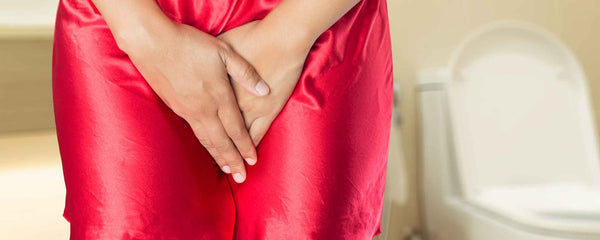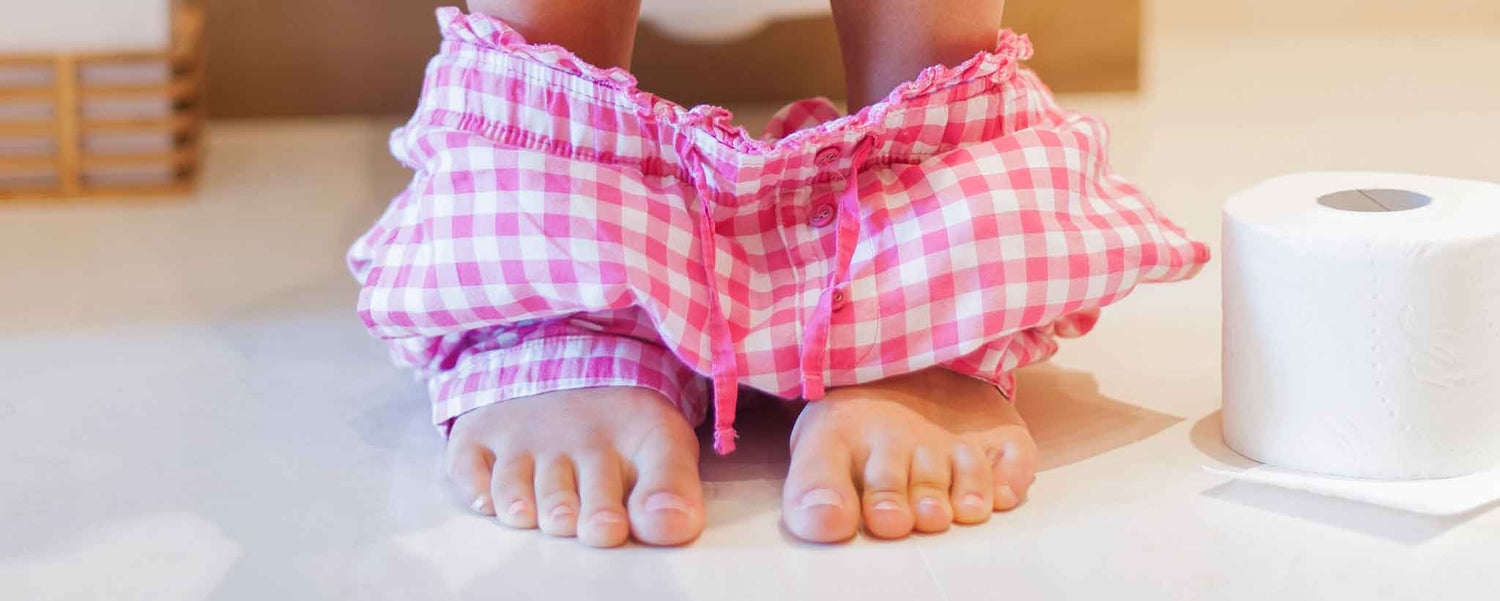After several accidental leaks, you may be wondering if you’re developing incontinence and whether there are precautions to prevent or reverse it.
Publish 24 March 2022
Exercising Restraint
Julie has ambitious plans of running a department in corporate America. At age 47, she has risen to an executive assistant, which some people erroneously assume is a secretary.
To make a good impression at her sedentary job, she works long hours. At least three cups of coffee get her through the mornings. Recognizing this is a diuretic, she drinks as much water as she can. A 20-ounce bottle rests on her nightstand to sip throughout the evening.
In a hectic work pace, restroom breaks are a luxury. Julie trains herself to suppress urination. She feels this bladder control makes her workday more productive.
From a Trickle to a Stream

During one trip to the toilet, she is unable to prevent a trickle before getting situated. Julie tries her best to rinse the spot from her skirt. She then douses herself with perfume to camouflage the smell of urine.
This is the second time this month Julie could not hold back a trickle. Thinking back further, this is the fourth time during this new year.
On two other occasions, she could not get from the bed to the toilet before wetting herself. The last time this happened at work, she intentionally spilled coffee on her blouse for an excuse to go home and change.
Julie now wonders if incontinence is preventable. She worries that she is developing incontinence. So she makes an appointment with her gynecologist, who then refers her to a urology professional.
Causes of Incontinence
The urologist puts Julie’s mind at ease with the reassurance that minor leaks of urine are common. A normal adult bladder capacity is about 2 cups (400–500 ml). Drinking large volumes of fluid can distend the bladder and fill the urethra. Aim to void your bladder every 3 hours. Causes for leaks can align with several types of incontinence.
- Stress incontinence – Sneezing, coughing, laughing, or lifting heavy objects causes urine leak.
- Overflow incontinence – Frequent or constant urine dribbling from the bladder that doesn’t empty completely.
- Urge incontinence – Involuntary urine loss following an intense urge to urinate.
- Functional incontinence – Physical or mental impairment preventing timely visits to the toilet.
- Mixed incontinence – Multiple types, such as stress incontinence plus urge incontinence.
As a woman, Julie is more prone to urinary incontinence. The doctor rules out pregnancy and childbirth as possible conditions. Since Julie is female, enlarged prostate or prostate cancer are not considerations. There is no evidence of neurological disorders such as multiple sclerosis, Parkinson’s disease, or spinal injury.
In most cases, mild cystitis (bladder inflammation) resolves itself within a few days with over-the-counter anti-inflammatory drugs like Aleve or ibuprofen. Interstitial cystitis is a complex, chronic disorder characterized by an inflamed or irritated bladder wall.
More common in women, this incurable irritation leads to bladder wall stiffening and frequent urges to urinate. Women often report pain in the pelvis or peritoneum.
An ultrasound detects obstructions. A tumor anywhere along the urinary tract can lead to overflow incontinence. Urinary stones within the bladder sometimes cause urine leakage. Doctors will endeavor to rule out a urinary tract infection.
Aging may weaken the bladder muscle and increase the frequency of involuntary bladder contractions. Incontinence may be hereditary. Estrogen in women helps keep the lining of the bladder and urethra healthy. Deterioration of these tissues after menopause sometimes aggravates incontinence. Though not always preventable, there are ways to help decrease the risk of urinary incontinence:
- Maintain a healthy weight.
- Practice pelvic floor exercises.
- Avoid bladder irritants, such as caffeine, alcohol, and acidic foods.
- Eat more fiber, which can prevent constipation, a cause of urinary incontinence.
- Avoid smoking.
Julie’s Recovery
Though minimally invasive treatments are available, surgery is not necessary in Julie’s case. Aging is weakening her bladder muscles. Julie’s self-imposed functional incontinence is the reason for accidents. She has a habit of delaying toilet visits too long—powering through work, she calls it.

Julie needs to visit the restroom more frequently. The doctor also advises that she cut back on her caffeine and limit the amount of liquids during the evening. With these adjustments, Julie will monitor her condition and follow up with the physician.
Follow the tips of Julie’s doctor. Absorbent underwear, liners, or pads are available that have minimal bulk. If you are leaking more than usual, schedule an appointment with your healthcare provider to discuss medical prescriptions and other options.
To support the writing of useful articles about urology, ClinicalPosters sells human anatomy charts, scientific posters, and other products online. You may sponsor specific articles, become a ClinicalNovellas Member, or remit a small donation.
ClinicalPosters sells human anatomy charts, scientific posters, and other products online to offset expense of the writing useful articles about urology. Slide extra posters into DeuPair Frames without removing from the wall.
Show your support by donating, shopping for ClinicalPins, becoming a ClinicalNovellas Member, or leaving an encouraging comment to keep the research going.
To support the writing of useful articles about urology, ClinicalPosters sells human anatomy charts, scientific posters, and other products online. You may sponsor specific articles or remit a small donation.
ClinicalPosters sells human anatomy charts, scientific posters, and other products online to offset expense of the writing useful articles about urology. Slide extra posters into DeuPair Frames without removing from the wall.
ClinicalPosters sells human anatomy charts, scientific posters, and other products online. You may remit a small donation or become a ClinicalNovellas Member.
You can support the writing of useful articles about urology by sponsoring specific articles, becoming a ClinicalNovellas Member, or remitting a small donation. Visible content is optimized for device size.







